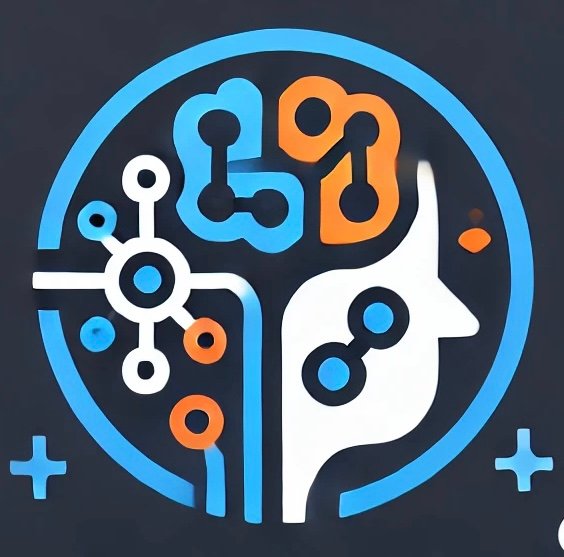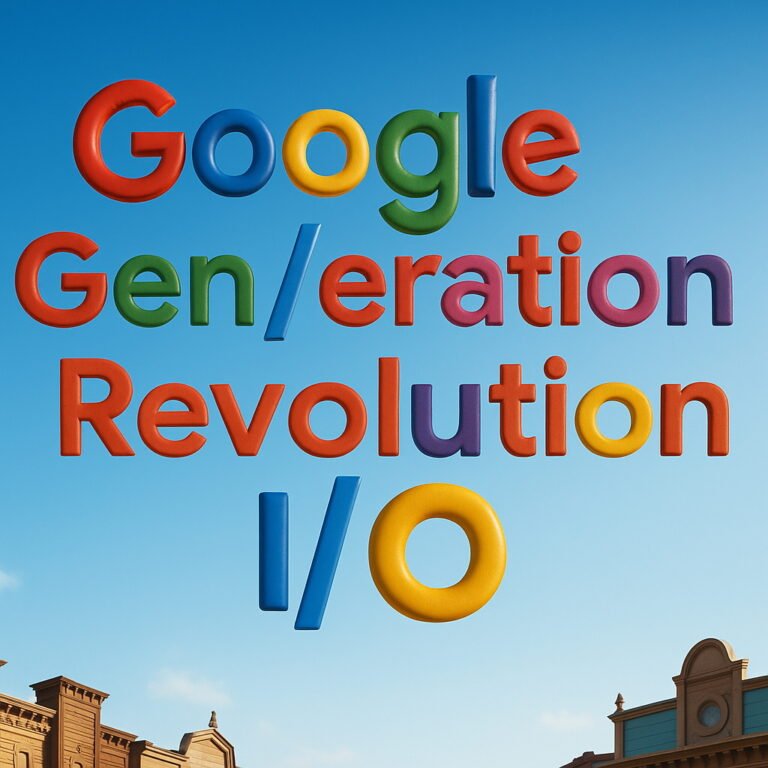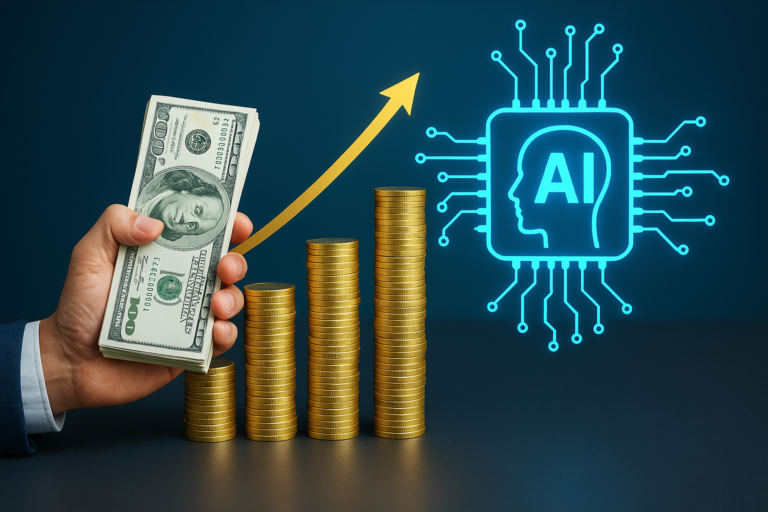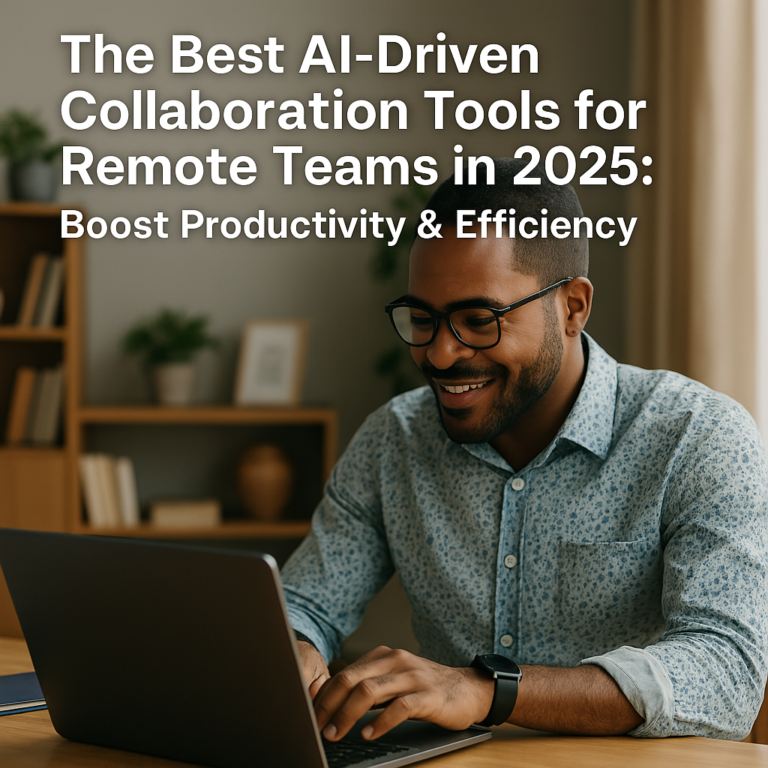Introduction

In today’s competitive sales landscape, AI-powered CRM tools are revolutionizing how sales teams operate. Gone are the days of manual data entry, intuition-based lead scoring, and reactive customer service. As we move further into 2025, artificial intelligence has become the defining factor separating high-performing sales organizations from the rest.
The integration of AI into Customer Relationship Management (CRM) platforms has transformed these systems from simple contact databases into intelligent sales companions that can predict customer behavior, automate routine tasks, and provide actionable insights that directly impact revenue growth. For sales professionals navigating increasingly complex buyer journeys, these tools have become indispensable.
This comprehensive guide explores the most innovative AI-powered CRM tools available to sales professionals in 2025, their benefits, challenges, and practical applications across industries. Whether you’re considering your first AI CRM implementation or looking to upgrade your existing system, this article will help you make informed decisions that align with your sales objectives.
Table of Contents
Background & Importance
What Are AI-Powered CRM Tools?
AI-powered CRM tools represent the evolution of traditional customer relationship management software through the integration of artificial intelligence capabilities. These systems leverage machine learning, natural language processing, and predictive analytics to transform how sales teams manage customer relationships and drive revenue.
According to recent data from Gartner, organizations that have deployed AI-powered CRM tools have seen an average increase of 30% in lead qualification rates and a 25% reduction in sales cycle length. This technological shift isn’t just a trend—it’s quickly becoming the standard operating procedure for sales teams looking to maintain competitive advantage.
The global CRM market is projected to reach $145.79 billion by 2029, with AI-enhanced CRM solutions accounting for over 60% of new implementations, according to Fortune Business Insights. This explosive growth reflects the tangible value these intelligent systems deliver.
Research from McKinsey suggests that sales teams using AI-driven CRM tools spend 20-30% more time on direct selling activities compared to those using conventional CRM systems. This productivity boost stems from automation of administrative tasks and the prioritization capabilities that AI provides, allowing sales professionals to focus their efforts where they matter most.
Key Benefits & Challenges
Top Benefits of AI-Powered CRM
Enhanced Lead Scoring and Prioritization
One of the most impactful capabilities of AI-powered CRM tools is intelligent lead scoring. By analyzing thousands of data points—including past purchasing behavior, website interactions, email engagement, and social media activity—these systems can predict which leads are most likely to convert.
Salesforce Einstein, for example, uses AI to analyze patterns from past wins and losses to assign accurate lead scores. Sales teams at Adidas reported a 59% increase in high-quality lead identification after implementing Einstein’s predictive lead scoring, according to a Salesforce case study.
“The AI-driven lead scoring capability has transformed how our sales team prioritizes outreach,” says Marcus Chen, VP of Sales at TechSolutions Inc.. “We’re now focusing on the right prospects at the right time, which has increased our conversion rate by 35% in just six months.”
Automated Workflows and Task Management
AI-powered CRM tools excel at automating repetitive tasks that traditionally consumed valuable selling time. From data entry and meeting scheduling to follow-up reminders and report generation, these systems use intelligent automation to streamline workflows.
HubSpot’s AI assistant can automatically log calls, transcribe conversations, and create follow-up tasks based on the discussion content. The system can even detect action items from email exchanges and create appropriate tasks without manual input.
A study by Aberdeen Group found that sales teams using AI-enhanced workflow automation spend 40% less time on administrative tasks compared to those using conventional CRM systems. This time savings translates directly to increased selling time and improved revenue performance.
AI-Driven Sales Forecasting
Accurate sales forecasting has traditionally been more art than science, but AI is changing that equation. Modern AI-powered CRM tools analyze historical performance data, current pipeline metrics, and external factors to generate highly accurate sales predictions.
Zoho CRM’s Zia AI assistant, for instance, can predict deal closure probabilities with up to 90% accuracy by analyzing past sales cycles and identifying patterns in successful versus unsuccessful deals. This forecasting precision allows sales leaders to make more informed resource allocation decisions and provide more reliable guidance to company leadership.
CloudSense, a telecommunications provider, improved forecast accuracy by 25% after implementing Microsoft Dynamics 365 Sales with its AI-powered forecasting features, according to a Microsoft customer story.
Personalized Customer Interactions
AI-powered CRM tools enable unprecedented levels of personalization in customer communications. By analyzing past interactions, purchase history, and even social media activity, these systems can suggest the optimal messaging, timing, and channel for each customer touchpoint.
Pipedrive’s AI features can recommend personalized email templates based on prospect characteristics and previous successful communications with similar clients. The system continuously learns which approaches work best for different customer segments, improving effectiveness over time.
According to research from Epsilon, 80% of consumers are more likely to make a purchase when brands offer personalized experiences. AI-powered CRM tools make this level of personalization scalable for sales teams of any size.
Seamless Integration with Other Sales Tools
Modern AI-powered CRM tools function as the central hub of an interconnected sales tech stack. Through robust APIs and native integrations, these platforms can exchange data with email platforms, meeting schedulers, contract management systems, and more.
Copper CRM, for example, offers deep integration with Google Workspace, automatically capturing data from Gmail, Google Calendar, and Google Drive without manual input. This seamless flow of information ensures the CRM remains the single source of truth for all customer data.
Monday Sales CRM provides extensive integration capabilities with over 200 other business applications, allowing sales teams to consolidate their work into a single platform while maintaining connections to specialized tools when needed.
Common Challenges & How to Overcome Them
Implementation Costs – How to Maximize ROI
While AI-powered CRM tools deliver significant value, the initial implementation costs can be substantial. According to Forrester Research, comprehensive CRM implementations can cost between $50,000 and $500,000 depending on organizational size and complexity.
To maximize return on investment:
- Start with a phased implementation approach, focusing first on the AI features that directly address your most significant sales challenges
- Carefully measure baseline performance metrics before implementation to accurately track improvements
- Consider cloud-based solutions with subscription pricing models to reduce upfront capital expenditure
- Leverage vendor implementation services and training to accelerate time-to-value
“The key to positive ROI with AI CRM implementation is identifying your specific pain points first,” advises Sarah Johnson, CRM Implementation Specialist at Digital Transformation Partners. “Don’t try to transform everything at once—focus on the areas where AI can make the biggest immediate impact on your sales process.”
Data Privacy Concerns – Best Practices for Compliance
As AI systems process increasingly large volumes of customer data, privacy concerns and regulatory compliance have become critical considerations. With regulations like GDPR, CCPA, and other regional data protection laws, sales organizations must ensure their AI CRM usage remains compliant.
Best practices for addressing data privacy concerns include:
- Working with CRM vendors that offer robust data governance controls
- Implementing role-based access controls to limit data visibility
- Conducting regular privacy impact assessments
- Maintaining transparent data usage policies
- Ensuring proper consent management for all customer data
Companies like Freshsales have built compliance features directly into their platforms, with automated data retention policies and anonymization capabilities that help organizations maintain regulatory compliance without sacrificing AI functionality.
Adoption Resistance – Training and Change Management Strategies
Perhaps the greatest challenge in implementing AI-powered CRM tools is ensuring user adoption. Even the most sophisticated system provides little value if sales professionals resist using it.
According to a study by CSO Insights, CRM adoption rates average just 47% without proper change management strategies. To overcome this challenge:
- Involve sales team members in the selection process to ensure the CRM addresses their actual needs
- Develop a comprehensive training program that focuses on the specific benefits for individual users
- Identify and support “power users” who can serve as internal champions
- Create incentives for CRM usage and data quality maintenance
- Provide ongoing support and continuous education as the AI capabilities evolve
“The success of our AI CRM implementation came down to how we managed the human element,” explains David Rodriguez, Sales Operations Director at Global Manufacturing Inc.. “We created a structured onboarding program with personalized training sessions and clear documentation of the benefits for each role. This increased our adoption rate from 40% to 92% within three months.”
Real-World Use Cases & Applications
Examples of AI-Powered CRM Tools Improving Sales Efficiency
Conversational Intelligence with Gong.io
Gong.io’s AI-powered conversation intelligence platform integrates with CRM systems to automatically record, transcribe, and analyze sales calls. The system identifies patterns in successful sales conversations and provides coaching recommendations based on this analysis.
Twilio implemented Gong.io alongside their Salesforce instance and saw a 25% increase in close rates as sales reps received AI-generated insights about their conversation techniques. The platform automatically logs call notes to the CRM, saving reps an average of 5 hours per week on manual data entry.
Proactive Customer Outreach with Outreach.io
Outreach.io combines CRM data with AI to determine the optimal timing, channel, and messaging for sales outreach. The platform’s “Guided Engagement” feature uses machine learning to suggest the next best action based on prospect behavior and historical success patterns.
When Snowflake Computing implemented Outreach.io in conjunction with their CRM, they experienced a 300% increase in sales activities while maintaining the same team size. The AI-powered guidance helped sales reps focus on the most effective outreach strategies for each prospect segment.
Smart Email Management with SalesLoft
SalesLoft’s integration with leading CRM platforms uses AI to analyze email response patterns and suggest the most effective subject lines, content, and sending times. The system continuously learns from successful communications to improve recommendations over time.
“After implementing SalesLoft’s AI email assistant with our CRM, our email response rates increased by 37%,” reports Jennifer Martinez, Sales Enablement Manager at Enterprise Solutions Group. “The system automatically logs all communications to our CRM while providing insights about which messages are most effective for different customer segments.”
Industry-Specific Case Studies
Real Estate: Zillow’s AI-Enhanced CRM
Zillow has developed proprietary AI-powered CRM capabilities that help real estate agents identify the most promising leads based on property viewing patterns, search behavior, and demographic information. The system automatically prioritizes outreach to prospects who exhibit behaviors similar to previous buyers.
“The AI scoring capability in our CRM helps our agents focus on the leads most likely to convert in the next 30 days,” explains Thomas Wright, Operations Director at Zillow. “This has increased our conversion rate by 45% while reducing the time agents spend qualifying leads manually.”
SaaS: HubSpot’s Impact at Shopify
Shopify utilizes HubSpot’s AI-powered CRM to manage its complex enterprise sales process. The system’s predictive lead scoring and automated workflow capabilities have transformed how their sales team operates.
According to a HubSpot case study, Shopify’s sales team saw a 70% increase in demo requests after implementing AI-driven lead nurturing sequences. The system automatically identifies when prospects are ready for sales conversations based on their interaction patterns across marketing channels.
Finance: JP Morgan Chase’s Intelligent CRM Deployment
JP Morgan Chase has implemented an AI-enhanced version of Salesforce Financial Services Cloud to transform their wealth management sales process. The system uses machine learning to analyze client portfolio data, market trends, and communication history to identify proactive outreach opportunities.
“Our advisors now receive AI-generated alerts when clients should be contacted about specific investment opportunities,” says Michael Thompson, Digital Transformation Lead at JP Morgan. “This has increased our managed assets by 23% as advisors can provide more timely, relevant recommendations to their clients.”
Expert Insights & Thought Leadership
Quotes from Industry Leaders on AI’s Role in CRM
“The future of sales isn’t about replacing humans with AI—it’s about augmenting human capabilities with intelligent systems that handle the routine aspects of customer relationships, freeing salespeople to focus on building trust and solving complex problems,” says Brent Leary, CRM Industry Analyst and Partner at CRM Essentials.
Tiffani Bova, Global Growth Evangelist at Salesforce, notes that “AI-powered CRM tools are creating a new category of ‘insight sellers’—professionals who leverage machine intelligence to identify needs customers themselves haven’t yet recognized. This predictive approach is transforming the nature of the sales profession.”
“The most successful organizations aren’t just implementing AI in their CRM—they’re redesigning their entire sales process around the capabilities these intelligent systems provide,” explains Jill Rowley, Chief Growth Advisor at Marketo. “This requires rethinking roles, metrics, and incentives to take full advantage of what AI can deliver.”
Comparisons of Traditional vs. AI-Powered CRM
| Function | Traditional CRM | AI-Powered CRM |
| Lead Scoring | Based on manual rules and basic demographics | Uses machine learning to identify patterns from thousands of data points |
| Sales Forecasting | Relies on rep judgment and pipeline stages | Based onthe manager’s observation and experience |
| Data Entry | Requires manual input from sales reps | Automatically captures data from emails, calls, and meetings |
| Customer Insights | Provides organized data but limited analysis | Surfaces actionable insights and next best actions |
| Pipeline Management | Tracks stages but offers little guidance | Identifies at-risk deals and suggests intervention strategies |
| Sales Coaching | Based on the manager’s observation and experience | Provides data-driven recommendations based on analyzed conversations |
“The difference between traditional and AI-powered CRM is like the difference between a map and a GPS navigation system,” says Mark Hunter, author of “A Mind for Sales.” “Both can help you reach your destination, but the AI-powered version actively guides you around obstacles and suggests faster routes based on real-time conditions.”
Step-by-Step Guide or Action Plan
How to Choose the Best AI CRM for Your Business
1. Assess Your Current Sales Process Challenges
Before evaluating specific AI CRM tools, document your current process pain points. Common issues include:
- Low lead conversion rates
- Excessive administrative workload
- Inaccurate forecasting
- Inconsistent follow-up
- Poor visibility into pipeline health
- Difficulty prioritizing accounts and opportunities
“Understanding your specific challenges is crucial for selecting the right AI capabilities,” advises Elena Domo, Sales Operations Consultant. “Different systems excel in different areas, so clarity about your priorities will guide your evaluation process.”
2. Define Your AI Functionality Requirements
Based on your identified challenges, determine which AI capabilities would deliver the greatest value for your organization:
- Predictive lead scoring and prioritization
- Automated data capture and entry
- AI-enhanced forecasting
- Conversation intelligence and coaching
- Next-best-action recommendations
- Opportunity risk assessment
- Personalized outreach suggestions
3. Consider Your Technology Ecosystem
Evaluate how the AI CRM will integrate with your existing technology stack:
- Email and calendar systems
- Marketing automation platforms
- Document management tools
- Communication platforms (phone, video, messaging)
- ERP and finance systems
- Contract management solutions
“Seamless integration capabilities should be a top consideration,” says Carlos Martinez, CIO at Global Sales Enterprises. “The value of an AI-powered CRM diminishes significantly if it creates data silos rather than connecting your entire customer-facing technology ecosystem.”
4. Evaluate Implementation Resources and Timeline
Assess the resources required for successful implementation:
- Internal IT support requirements
- Data migration complexity
- User training needs
- Customization requirements
- Timeline constraints
- Budget considerations
5. Develop a Shortlist and Conduct Demos
Create a shortlist of 3-5 vendors that appear to meet your requirements, then schedule in-depth demonstrations focused on your specific use cases. Leading AI-powered CRM platforms to consider include:
- Salesforce Sales Cloud with Einstein
- Microsoft Dynamics 365 Sales with Copilot
- HubSpot Sales Hub with AI capabilities
- Zoho CRM with Zia
- Freshsales with Freddy AI
- Pipedrive with AI Sales Assistant
Checklist for Evaluating CRM Features
When evaluating AI-powered CRM tools, use this comprehensive checklist to ensure you’re considering all critical factors:
AI Capabilities
- [ ] Predictive lead scoring methodology
- [ ] Sales forecasting accuracy metrics
- [ ] Conversation intelligence features
- [ ] Automated data capture capabilities
- [ ] Recommendation engine sophistication
- [ ] Personalization options
- [ ] AI model transparency and explainability
Usability
- [ ] Intuitive user interface
- [ ] Mobile capabilities
- [ ] Customization flexibility
- [ ] Automation builder accessibility
- [ ] Reporting and dashboard creation
- [ ] Search functionality
- [ ] Learning curve assessment
Integration
- [ ] Native integrations with your critical tools
- [ ] API capabilities and documentation
- [ ] Data sync frequency and reliability
- [ ] Webhook support
- [ ] Integration maintenance requirements
- [ ] Authentication and security integration
Support and Training
- [ ] Implementation support options
- [ ] Training resources and documentation
- [ ] User community and knowledge base
- [ ] Support response times and channels
- [ ] Update frequency and communication
- [ ] AI feature onboarding resources
Security and Compliance
- [ ] Data encryption standards
- [ ] Compliance certifications (GDPR, CCPA, etc.)
- [ ] Access control granularity
- [ ] Audit logging capabilities
- [ ] Data residency options
- [ ] AI model data usage policies
Best Practices for Seamless Integration
To ensure the smooth implementation of your chosen AI-powered CRM:
1. Establish Clear Data Standards
Before migration, define standards for:
- Contact and account naming conventions
- Required fields and data quality thresholds
- Duplicate management approach
- Historical data migration scope
- Ongoing data maintenance procedures
“Clean data is the foundation of effective AI,” emphasizes Robert Johnson, Data Quality Manager at Enterprise Solutions. “Even the most sophisticated AI algorithms will produce poor results if fed inconsistent or incomplete information.”
2. Implement in Phases
Rather than attempting a complete rollout immediately:
- Start with core features for a pilot group
- Expand functionality incrementally
- Add more advanced AI capabilities as user proficiency increases
- Document wins at each stage to build momentum
3. Create Role-Based Training Programs
Develop customized training for different user roles:
- Sales representatives focus on day-to-day usage
- Sales managers learn reporting and coaching features
- Administrators understand configuration and maintenance
- Executives learn dashboard interpretation and strategic insights
4. Establish Clear Success Metrics
Define specific KPIs to measure implementation success:
- Adoption rate by user role
- Time savings from automation
- Increase in qualified leads
- Improvement in forecast accuracy
- Growth in win rates
- Reduction in sales cycle length
“What gets measured gets improved,” says Samantha Peters, CRM Implementation Director. “Establishing baseline metrics before implementation and tracking improvements religiously helps justify the investment and identify areas for ongoing optimization.”
Common Myths & Misconceptions
Myth #1: AI CRM Replaces Salespeople
One of the most persistent misconceptions about AI-powered CRM tools is that they aim to replace human sales professionals. Reality tells a different story.
“AI isn’t replacing salespeople—it’s replacing administrative tasks that prevent salespeople from selling,” explains Ryan Deiss, founder of DigitalMarketer. “Our research shows that sales teams using AI CRM tools spend 27% more time in direct customer conversations than those using traditional systems.”
Rather than elimination, AI is transforming the sales role to focus more on relationship building, complex problem-solving, and consultative selling—areas where human judgment and empathy remain irreplaceable. The technology handles data collection, analysis, and routine follow-ups, allowing sales professionals to concentrate on high-value activities.
Companies like Drift have built their entire sales tech stack around this principle of AI augmentation rather than replacement. Their AI-powered chatbots handle initial qualification, but seamlessly transfer conversations to human sales representatives when complexity increases or emotional intelligence is required.
Myth #2: AI-Driven CRMs Are Only for Large Enterprises
Many small and mid-sized businesses assume that AI-powered CRM tools remain the exclusive domain of large enterprises with substantial IT budgets. This perception is increasingly outdated.
“We implemented Pipedrive’s AI Sales Assistant when we were just a 12-person sales team,” shares Eliza Martinez, Sales Director at GrowthWorks, a mid-sized marketing agency. “The cloud-based deployment model and subscription pricing made advanced AI capabilities accessible without enterprise-level investment.”
Modern AI-powered CRM solutions like Keap (formerly Infusionsoft) and Zoho CRM specifically target small to medium businesses with pricing models and feature sets designed for organizations with limited resources. These platforms offer scalable AI capabilities that grow with the business, providing immediate value without overwhelming complexity.
A 2024 survey by SMB Group found that small businesses using AI-enhanced CRM tools experienced an average 23% increase in sales productivity—a higher percentage improvement than their enterprise counterparts, suggesting these tools may provide greater relative benefit to smaller organizations.
Myth #3: AI in CRM Is Too Expensive
The perception that AI-powered CRM tools require massive financial investment is another common misconception that deserves correction.
“When we calculate the total cost of ownership, our AI-enhanced CRM costs less than our previous traditional system,” reports Carlos Menendez, Sales Operations Manager at Tech Solutions Inc. “The reduction in administrative time, improved lead conversion rates, and increased deal velocity more than offset the higher subscription price.”
Several factors have made AI CRM more accessible:
- Cloud-based deployment models eliminate large upfront capital expenditures
- Tiered pricing allows organizations to start with essential AI features and scale up
- Reduced administrative overhead lowers the total personnel cost of CRM maintenance
- Improved win rates and larger deal sizes directly impact ROI calculations
Freshsales, for example, offers AI-powered CRM starting at under $50 per user per month—comparable to many traditional CRM systems without intelligent capabilities. Meanwhile, calculations from Salesforce suggest their Einstein AI features save the average sales rep 5-10 hours weekly in administrative work, representing thousands of dollars in productivity gains annually.
Future Trends & Predictions
Emerging AI Features in CRM Software
As we move further into 2025, several emerging AI capabilities are beginning to reshape what’s possible in CRM technology:
Sentiment Analysis in Real-Time
Next-generation AI CRM tools are beginning to incorporate sophisticated sentiment analysis during live customer interactions. Systems like Gong.io can now detect subtle changes in a prospect’s tone and provide real-time coaching to salespeople, suggesting when to address concerns or pivot conversation directions.
“The ability to analyze emotional signals during calls has transformed our approach to complex negotiations,” says Thomas Anderson, Enterprise Sales Director at CloudTech Solutions. “Our closing rate on large deals increased by 34% after implementing real-time sentiment coaching.”
Prescriptive Analytics Beyond Prediction
While current AI systems excel at predicting outcomes, emerging CRM technology is moving toward prescriptive analytics—not just forecasting what will happen, but recommending specific actions to improve outcomes.
Microsoft’s Dynamics 365 Sales Copilot, for instance, now offers “opportunity rescue” capabilities that identify at-risk deals and automatically suggest tailored intervention strategies based on historical patterns of similar deals that were successfully salvaged.
Autonomous Relationship Management
The most advanced AI CRM tools are beginning to handle certain aspects of customer relationship management with minimal human involvement. Systems can autonomously:
- Send personalized follow-up emails after triggers like proposal delivery
- Schedule meetings based on detected intent in email exchanges
- Update records and enrich contact data from public sources
- Qualify and nurture early-stage leads until they reach sales-readiness
“Our AI system now handles nearly 60% of our lead nurturing process autonomously,” reports Sandra Kim, Marketing Director at SaaS Enterprise. “This allows our sales team to focus exclusively on qualified opportunities while maintaining consistent touch points with our entire prospect database.”
The Role of Conversational AI and Chatbots
Conversational AI is rapidly becoming a central component of comprehensive CRM strategies, extending beyond website chat to become integrated sales assistants.
Advanced Sales Chatbots
Platforms like Drift and Intercom have evolved from simple website assistants to sophisticated sales tools that integrate deeply with CRM systems. These conversational agents can:
- Qualify prospects through natural language conversations
- Schedule meetings directly in sales representatives’ calendars
- Answer detailed product questions by accessing knowledge bases
- Identify buying signals and alert sales professionals in real-time
“Our conversational AI platform detected purchase intent in 22% of conversations that traditional lead scoring would have missed,” notes Jason Martinez, Digital Sales Manager at Enterprise Solutions. “The system’s ability to understand nuanced language patterns has uncovered opportunities we would have otherwise overlooked.”
Voice Assistant Integration
Leading CRM platforms are beginning to integrate with voice assistants like Amazon Alexa and Google Assistant, allowing sales professionals to interact with their CRM through natural language commands.
Salesforce’s Einstein Voice Assistant, for example, enables sales representatives to update records, create tasks, and retrieve customer information through voice commands while driving between appointments. This hands-free functionality addresses one of the most persistent challenges in CRM adoption—the friction of data entry during a busy sales day.
Predictions for the Next Five Years in AI-Powered Sales Tech
Looking ahead to 2030, several transformative developments appear likely in the AI CRM landscape:
1. Ambient CRM
The concept of “ambient CRM” involves systems that continuously gather and process customer interaction data with minimal manual input. Through integration with communication platforms, IoT devices, and digital assistants, these systems will maintain comprehensive, current customer profiles without requiring explicit data entry.
“The future of CRM is invisible,” predicts Elena Rodriguez, Technology Futurist at Deloitte. “Within five years, the most advanced systems will gather, organize, and analyze customer data autonomously, surfacing insights precisely when needed without requiring sales professionals to ‘use’ the CRM in the traditional sense.”
2. Hyper-Personalization at Scale
AI algorithms will enable personalization far beyond current capabilities, creating truly individualized experiences for each prospect and customer:
- Communication timing optimized to individual preference patterns
- Content and messaging tailored to specific psychological profiles
- Customized purchasing journeys based on detailed behavioral analysis
- Personalized pricing recommendations optimized for both conversion and margin
3. Augmented Reality Integration
The integration of AR technology with AI-powered CRM will transform how complex products are sold:
- Virtual product demonstrations controlled by sales AI
- Interactive pricing and configuration visualization
- Remote collaboration spaces for complex sales processes
- AR-based training for new sales representatives
“We’re already piloting AR capabilities integrated with our CRM,” reveals Michael Chen, Innovation Director at Manufacturing Technologies Inc. “Our sales team can now guide customers through virtual product demonstrations while the AI system tracks engagement and suggests focusing on features that generate the most interest.”
4. Emotional Intelligence Enhancement
Perhaps most significantly, AI CRM systems will increasingly incorporate emotional intelligence capabilities:
- Detection of subtle emotional cues in written and verbal communication
- Adaptation of sales approaches based on prospect personality types
- Coaching for sales professionals on building genuine rapport
- Identification of relationship risks based on communication pattern changes
“The next frontier in AI sales technology isn’t just cognitive intelligence but emotional intelligence,” suggests Dr. Rebecca Adams, Professor of Sales Psychology at Northwestern University. “Systems that can understand and respond appropriately to human emotions will transform the effectiveness of digital sales channels.”
Conclusion & Call to Action
As we’ve explored throughout this comprehensive examination, AI-powered CRM tools have fundamentally transformed the sales profession in 2025. These intelligent systems have evolved from simple contact databases into sophisticated sales partners that augment human capabilities in remarkable ways.
The benefits are clear and compelling: enhanced lead prioritization, automated administrative tasks, accurate forecasting, personalized customer interactions, and seamless integration with the broader sales technology ecosystem. While challenges exist—including implementation costs, data privacy concerns, and adoption resistance—proven strategies can effectively address these obstacles.
Across industries from real estate to finance to SaaS, organizations are realizing substantial returns from their investments in intelligent CRM technology. The productivity gains, improved conversion rates, and enhanced customer experiences deliver measurable value that directly impacts revenue growth and competitive advantage.
As we look toward the future, emerging capabilities like real-time sentiment analysis, prescriptive analytics, and conversational AI promise to further revolutionize how sales teams operate. The organizations that embrace these technologies today will be best positioned to thrive in tomorrow’s increasingly competitive landscape.
Take the Next Step in Your AI CRM Journey
If you’re considering implementing or upgrading your CRM system, now is the time to explore how AI-powered tools can transform your sales operations:
- Assess your current sales process to identify specific challenges that intelligent CRM capabilities could address
- Schedule demonstrations with leading vendors to see these tools in action with your specific use cases
- Start small with a pilot program focused on the features that promise the greatest immediate impact
- Measure results rigorously to build internal support for broader implementation
The sales organizations that thrive in the coming years won’t be those with the largest teams or the biggest budgets—they’ll be the ones that most effectively leverage artificial intelligence to enhance human capabilities, build meaningful customer relationships, and deliver exceptional value throughout the sales process.
For more information on selecting and implementing the right AI-powered CRM for your organization, explore our related resources:
- The Complete Guide to CRM Implementation
- AI Sales Tools Comparison Worksheet
- CRM ROI Calculator
- The Future of Work: How AI is Transforming Every Industry in 2025 and Beyond
The future of sales is intelligent, efficient, and remarkably human. Is your organization ready?




